Fritextsökning
Artiklar per år
Innehållstyper
-
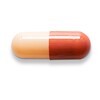
The stomach medication that became the biggest blockbuster of the 1990s
The omeprazole molecule was synthesised as early as 1979, but it took many years before the then Astra had an approved pharmaceutical. Once this happened, a tablet was available that was soon to help millions of people worldwide and break all sales records.
-

The TFS family is growing
TFS HealthScience is a European based CRO company with broad expertise and experiences in the biotech and pharmaceutical sector. The company is growing and the TFS family welcomes new members.
-
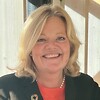
“We need to keep investing in research and innovation”
Jenni Nordborg has worked for just over four years to highlight life science in Sweden. Her mandate as national coordinator ends in December 2022. ““Life sciences has been a long-term priority of governments since many years and I have no doubt that the ambitions will be strong going forward”, says Jenni Nordborg.
-

Biosimilars bring price pressure, but are they sufficiently used?
When biosimilars were introduced just over 16 years ago, hopes were raised that they would give many more patients access to effective but otherwise extremely expensive treatments with biological drugs. So, how well has Swedish healthcare used biosimilars? The answer partly depends on whom you ask.
-

Karolinska nionde bästa sjukhuset i världen i ny rankning
Återigen rankar Newsweek de bästa sjukhusen i världen. I år har de listat de sjukhus som är bäst på att använda ny teknik. Karolinska universitetssjukhuset utmärker sig inom artificiell intelligens och hamnar på plats 9 av 300 sjukhus.
-

Ny styrelse klubbad i Idogen
Idogen höll under tisdagen extra bolagsstämma för att besluta om en nygammal styrelse.
-

Lucy Robertshaw: Did you know Stockholm wants to be in top 5 in the world for Life Sciences?
Karolinska Institutet Solna Campus has certainly become the next “Kendall Square”, writes Lucy Robertshaw in a column.
-

Idogen möblerar om när storägare går in i styrelsen
Biotechföretaget Idogen bygger om sin styrelse med två nya representanter för bolagets huvudägare. Dessa är Joakim Söderström, som också föreslås bli ny styrelseordförande, och Niklas Wallett.
-

Hello Angelica Loskog!
Life Science Sweden would like to know more about Angelica Loskog and interviews her about her life as a researcher.
-
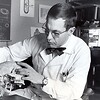
When carelessness, forgetfulness and coincidence become the researcher’s best friend
Forgetfulness, coincidence and a stroke of luck hardly make up a fruitful method of serious research. Or do they? Actually, a number of important medical advances have come about thanks to completely random incidents and the open-mindedness of scientists who were ready to think outside the box.
-

CAR-T therapies give continued hope: “Almost half of the patients have become disease-free”
become disease-free, at least of those treated with Yescarta, which are the ones I know best,” says Gunilla Enblad, Chairman of the national working group for CAR-T treatment.
-
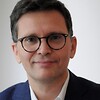
Samuel Lagercrantz: Immunotherapy against cancer is still in its early stages
with the saying: He who laughs last laughs best, writes Samuel Lagercrantz in an editorial.
-
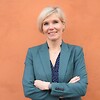
Marie Gårdmark: Finally, it’s time for a revision of the EU pharma legislation
A challenge for the EU Commission is to deliver a new framework that will also take care of another “pillar” of the pharmaceutical strategy, namely, to ensure that new medicines will be available for all citizens in Europe, writes Marie Gårdmark in a column.
-
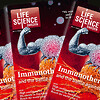
Life Science Sweden´s international issue is on its way
A new issue of Life Science Sweden is on its way to print, packed with news, interviews and reports.
-
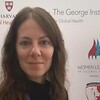
Giulia Gaudenzi: Innovation for good
"I challenge the innovator landscape to take a mental leap. Relying on innovation-solely to end inequality is not enough, therefore consciously and purposively – we need to engage bravely with the politics of poverty and scarcity. Even in life sciences", writes Giulia Gaudenzi in a column.
-
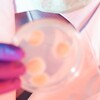
Ny larmrapport: Över en miljon dör på grund av resistens mot antibiotika
En bra bit över en miljon dödsfall i världen orsakades av antibiotikaresistens under 2019, enligt en analys av globala data från 204 länder.